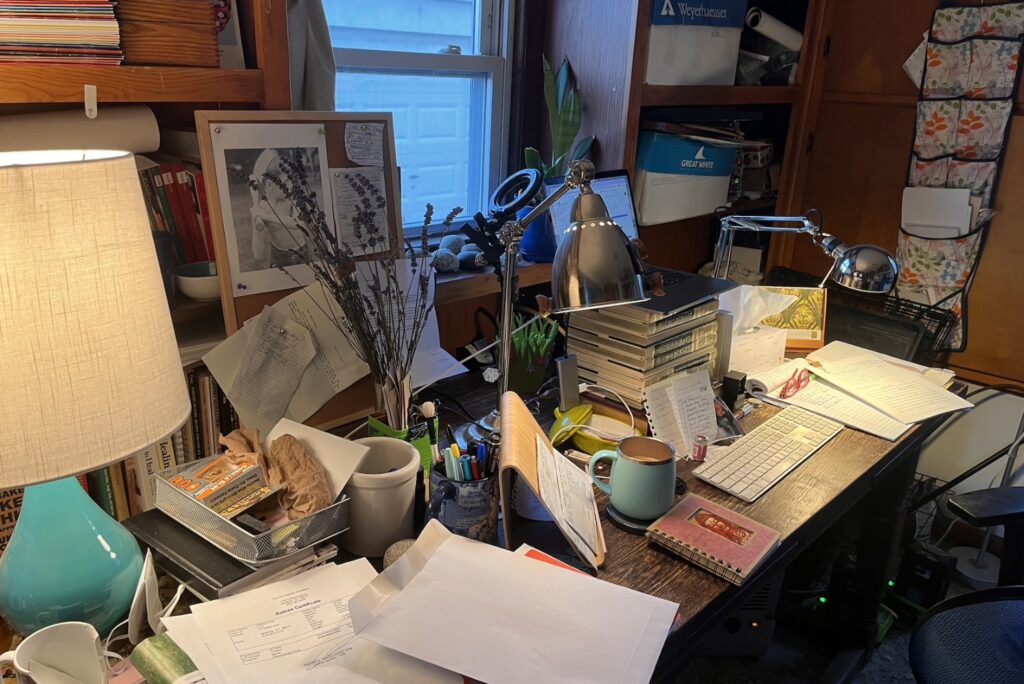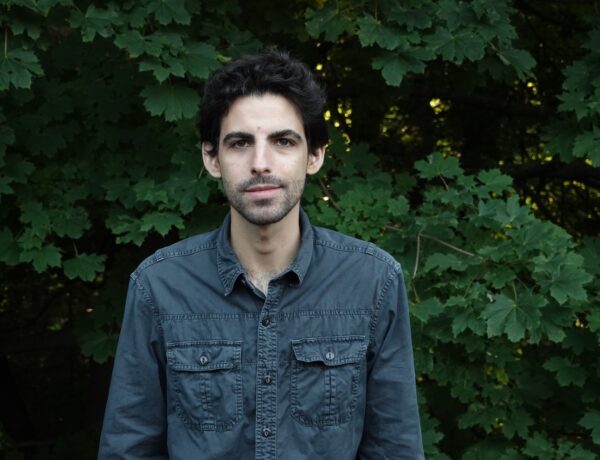Sonya Huber is the author of the acclaimed book, Pain Woman Takes Your Keys and Other Essays from a Nervous System. This collection of essays focuses on the topic of chronic pain and won the Independent Voice Award from the Independent Publishers’ Association, as well as the Foreword Review Silver Award.
As a professor of English at Fairfield University, she has led workshops and presented her work in various settings, including with incarcerated men, doctors and nurses, veterans, and activists. Her essays and other writing have been published in The New York Times and other literary journals and magazines. She has also published an e-book on her experiences in direct care work.
Each week, we publish a new daily writing routine from a famous author. Subscribe to our newsletter so you don’t miss out!
Hi Sonya, welcome to Famous Writing Routines, great to have you here with us today! You are a writer of creative nonfiction, memoir, and journalism, as well as other genres. What is it about the essay form that you find most appealing?
I love that I can start an essay with a gnarly question and end up making something that leads me in a completely unexpected direction. I love weaving in research and building a porous container for learning new things.
Born in Evergreen Park, IL and raised in New Lenox, IL, you have had a diverse background working in various industries, including as a waitress, artist’s model, and nonprofit project manager. How have your diverse life experiences influenced your writing and teaching?
I love reading and writing stories about work – it’s an area of life that is often riven with conflict and where we spend so much of our waking hours. As a result, I try to assign and write about work, labor issues, and broader issues of socio-economic justice. And I encourage students to write about work and money, as those topics often remain either taboo or they are discarded as not interesting material.
I also like to talk with students about what it means to continue to be a creative person, how to integrate a thread of creative activity even when one is under pressure due to demands on time, money, and family. I try to turn students toward setting the bar low, not having expectations or comparing to another person’s “output” or routine, and to see creative work as live-giving and sustaining however one is able to keep touch with it.
Pain Woman Takes Your Keys and Other Essays from a Nervous System is a collection of essays on chronic pain, and has won several awards, including the Independent Voice Award from the Independent Publishers’ Association and the Foreword Review Silver Award Winner. What inspired you to write about this topic, and what was your experience like writing these essays?
I started experiencing symptoms of what would be diagnosed as Rheumatoid Arthritis in 2009, and I was sort of forced to write about it as a way to navigate that difficult experience – both of handling a sudden experience of daily pain and of trying to get a diagnosis and treatment, which was arduous in and of itself.
I collected scraps of phrases, but I was challenged because the pain affected my energy and thinking, as well as what I thought of as my style and voice. It pushed me to express things in new ways, and at first those ways felt too “weird.” I relied on wisdom from disability activists and thinkers to understand what was happening to my life.
As I published one essay and then another, the encouragement of readers pushed me to understand that I was on the trail of something. I think of it as a book that was really brought into being with the help of many, many people, and that book continues to bring so many wonderful people and experiences into my life.
You have had your work published in a variety of literary journals and magazines, including The New York Times, Creative Nonfiction, and the Washington Post Magazine. What has been the highlight of your publishing career so far?
Honestly, I would say the reception to Pain Woman, its ongoing life, the fact that six years after its publication, people still buy it and discover it and talk about it. For a book published by a university press with a promotion budget of zero, that is the dream!
Do you struggle to stay focused while writing? You’re not alone! That’s why Famous Writing Routines recommends Freedom – the ultimate app and website blocker for Mac, Windows, Android, iOS, and Chrome. With over 2.5 million users, Freedom helps writers stay on task and avoid distractions. Get started for free today and reclaim your productivity!
What does a typical writing day look like for you?
I get up around 6:30 or 7, make coffee, and head to the basement where my desk is. My rule has always been to just sit in the chair for an hour. Sometimes that means I know exactly what I’m working on and I’m immersed, and sometimes that means I’m sort of looking through notes, checking social media, and mulling something over.
I am very permissive with myself. I just look at my writing each day, and I usually end up writing for most of that hour and sometimes more, but also sometimes a lot less. When I’m thinking about a hard question related to writing – something about structure, about where to start – it can look very, very slow indeed. I often have to draw diagrams and pictures before I write as a way to think about what I’m writing about.
If you could have a conversation with any author throughout history about their writing routine and creative process, who would that person be?
Wow, this is a cool question! I would want to talk with George Orwell, as he’s been a guiding light for me in terms of his political writing and the way he just kept going. I don’t think I’d even ask him anything – I would just want to hang out. If anyone else is a fan of Orwell, I would highly recommend Rebecca Solnit’s book Orwell’s Roses, which is a priceless addition to biographical information about him.
I’d love to know about the books you’re reading at the moment. What have been some of your favorite reads?
I am finishing Doxology, a novel by Nell Zink, and just finished another novel, The Candy House, by Jennifer Egan. I usually read nonfiction but my brain has needed a break recently. Another book I adored that came out late last year was Alice Wong’s Year of the Tiger: An Activist’s Life.
What does your current writing workspace look like?
It looks like complete chaos. Lots of lamps, plants, papers, a desk my friend Elizabeth gave me, and next to my writing desk is a crafting table with art supplies. I’ve had a lot of workspace configurations over the years, and this is my favorite. It’s isolated from the rest of the house but still in the house, and I like to work in a nest of materials. I feel safe and stimulated here.

Affiliate disclaimer: Some links on this website are affiliate links. We may earn a small commission if you make a purchase through these links, but only promote products we truly believe in. We disclose affiliate links and give honest reviews.



No Comments